David, a three-year old residing in Ado-Ekiti, Ekiti State harboured a strong dislike for brushing his teeth. Each morning, he would resist his guardian, Deborah Akinwale’s attempts to brush his teeth, often resorting to loud crying and scratching in his efforts to avoid the task.
Adhering to the US Centre for Disease Control’s (CDC) recommendation of brushing teeth twice daily for children proved impossible for David, who already struggled with brushing once a day. However, his perspective changed when he came across an engaging storytelling and edutainment strategy focusing on oral hygiene. This successfully inspired him to adopt better oral habits.
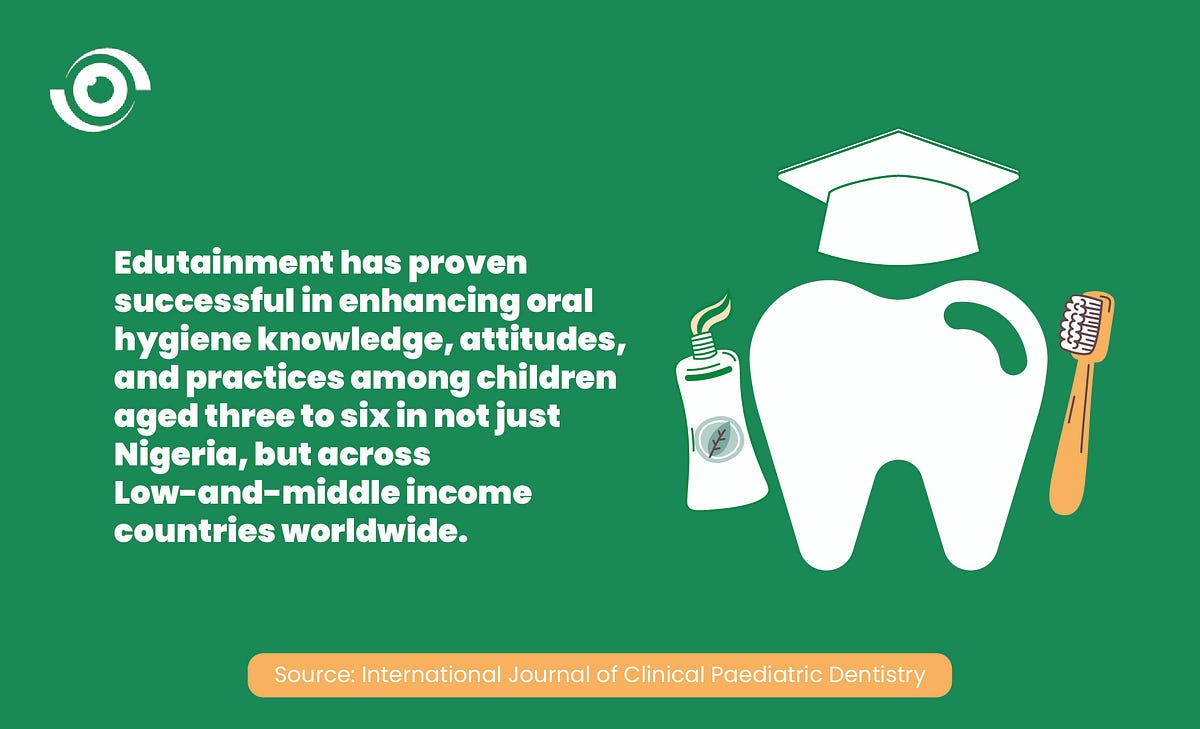
“There is this song on dental healthcare called Anita sings which talks about brushing. Once I play that song from YouTube and say, ‘David let’s brush,’ he will just calm down and allow me to brush his teeth without fighting while following the song,” Deborah said.
Now seven, David can sing it off the top of his head and brushes twice a day, without needing reminders from his guardian. “I did not co-operate when I was younger because it was painful and hurt my gums, but the song made me like brushing my teeth twice a day, and now, I can brush even without hearing the song,” David revealed.
According to a 2022 World Health Organisation (WHO) report, about 35% of untreated tooth cavities is recorded among children between the ages 1–9 in Nigeria with a significant awareness gap on oral care. In response to this issue, Dr Adekemi Adeniyan, a dentist, implemented the use of entertainment materials such as books, videos and music to educate children in underserved rural communities, where access to oral healthcare services and knowledge is limited and oral diseases disproportionately impacts disadvantaged groups.
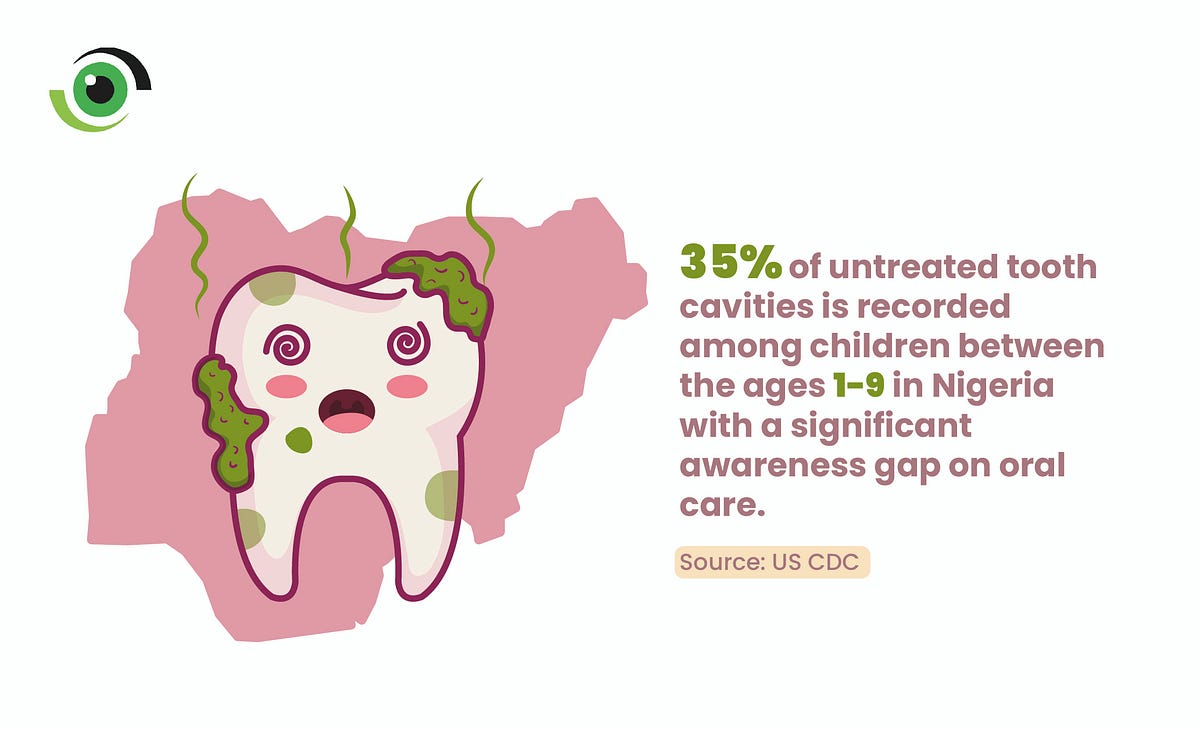
The method that combines education and entertainment known as edutainment has proven successful in enhancing oral hygiene knowledge, attitudes, and practices among children aged three to six in not just Nigeria, but across Low-and-middle income countries worldwide. This innovative approach engages young children, making learning about oral health both enjoyable and effective.
Anita, the girl who found her smile
Dr. Adeniyan’s personal experience of living with pain from tooth cavities right from the age of seven, due to her family’s inability to afford dental care, inspired her to assist children in underserved areas facing similar oral care inequities. Her resolve was further solidified during her National Youth Service (NYSC) in 2014, where she was posted to a rural part of Ekiti State and observed how children were suffering from permanent tooth loss due to inadequate access to dental clinics.
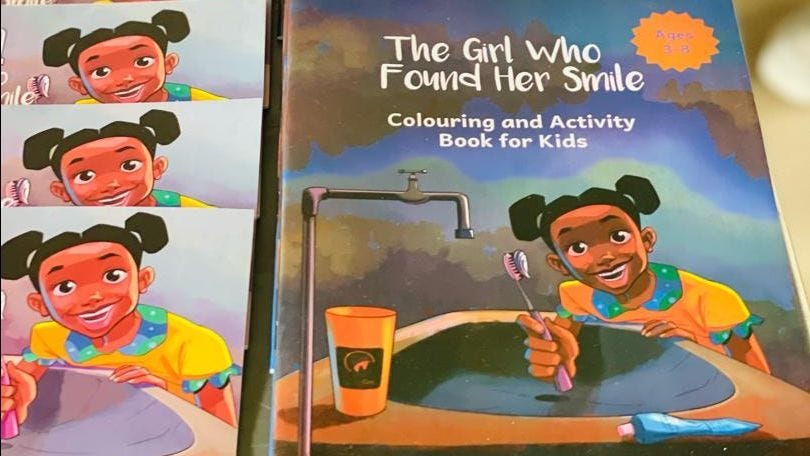
“At my NYSC posting in a dental clinic, I would watch parents ask me to pull out the bad tooth of their child because they could not afford as little as N2,000 to solve the pain of that child and I just knew that I wanted to dedicate my life to children who have been underserved,” Dr Adeniyan told Nigeria Health Watch.
Inspired by her personal experiences, Dr. Adeniyan founded the Dental Care Foundation in 2018 with the goal of promoting oral hygiene and improving access to dental care in Nigeria’s rural and underserved communities. The foundation employs innovative edutainment techniques such as music, storytelling, and video animation to effectively teach fundamental oral hygiene practices to children in rural areas across the nation. One of them is a 32-page illustrated storybook titled “The Girl Who Found Her Smile” designed for children, featuring a 7-year-old character named Anita. The book revolves around Anita’s oral care journey and provides a guide on proper brushing techniques. It also includes a workbook for children to set and track their monthly oral health goals, encouraging active engagement in maintaining healthy teeth.
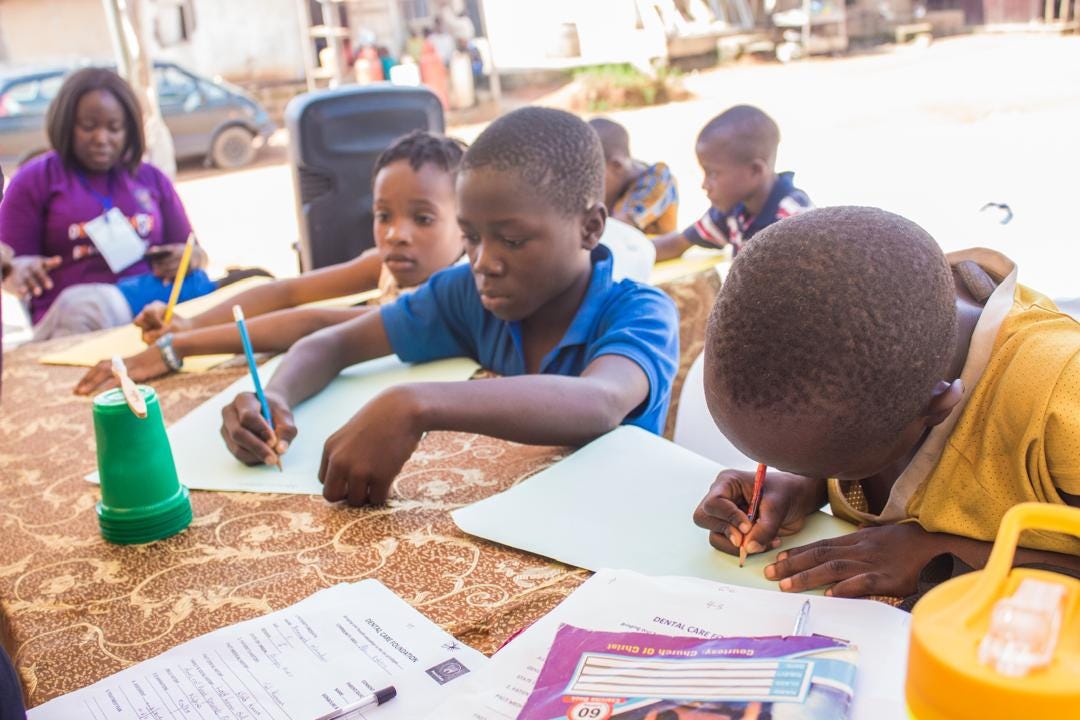
Obaseosuwake Maranatha, founder of In His Image Academy (IHI) — a non-profit school providing free education to children in Yimitu, Abuja- said the books, which they received through donations in 2021, enlightened the students about the need for good oral hygiene practices and how to keep healthy teeth.
“The book taught me that fruits are better than candies so I don’t eat candies more than fruits because candies can cause tooth problems,” 12-year-old Gaius Ayuba, a student at IHI Academy said, “I also brush twice a day, morning and night before I go to bed because the book said so.” Maranatha added that whenever her students see someone eating candy, they immediately start reminding themselves about the lollipop Anita ate that spoilt her teeth.
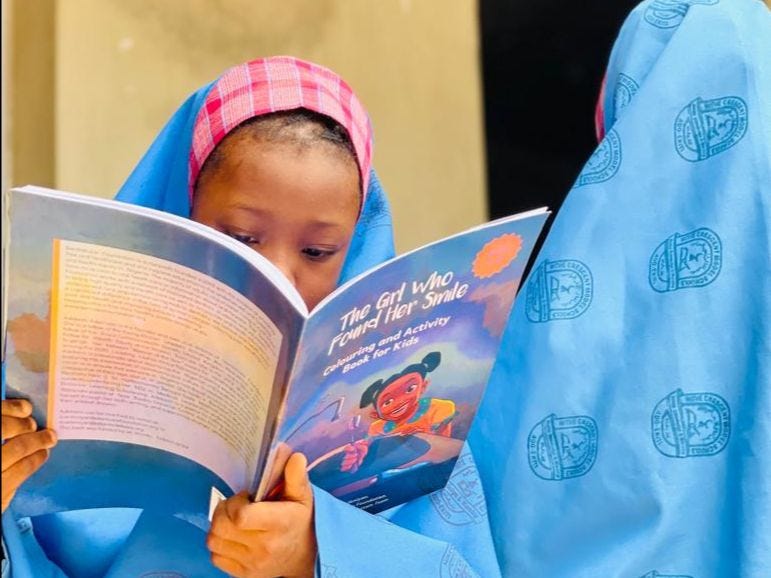
Distributing approximately 10,000 copies of “The Girl Who Found Her Smile,” translated into Hausa, Igbo, and Yoruba languages, the Dental Care Foundation reached schools in rural communities across Nigeria, South Africa, and Kenya. Additionally, they provided over 20,000 free oral care kits containing toothbrushes and toothpaste to further support these initiatives.
In 2022, the foundation extended its reach by translating the book into Filipino and sharing it with over 2,000 children in the Philippines. This endeavour led to the creation of a monthly virtual oral health club, fostering a cross-cultural environment where children from rural areas in Nigeria, the Philippines, South Africa, and Kenya actively engage in learning about oral health.
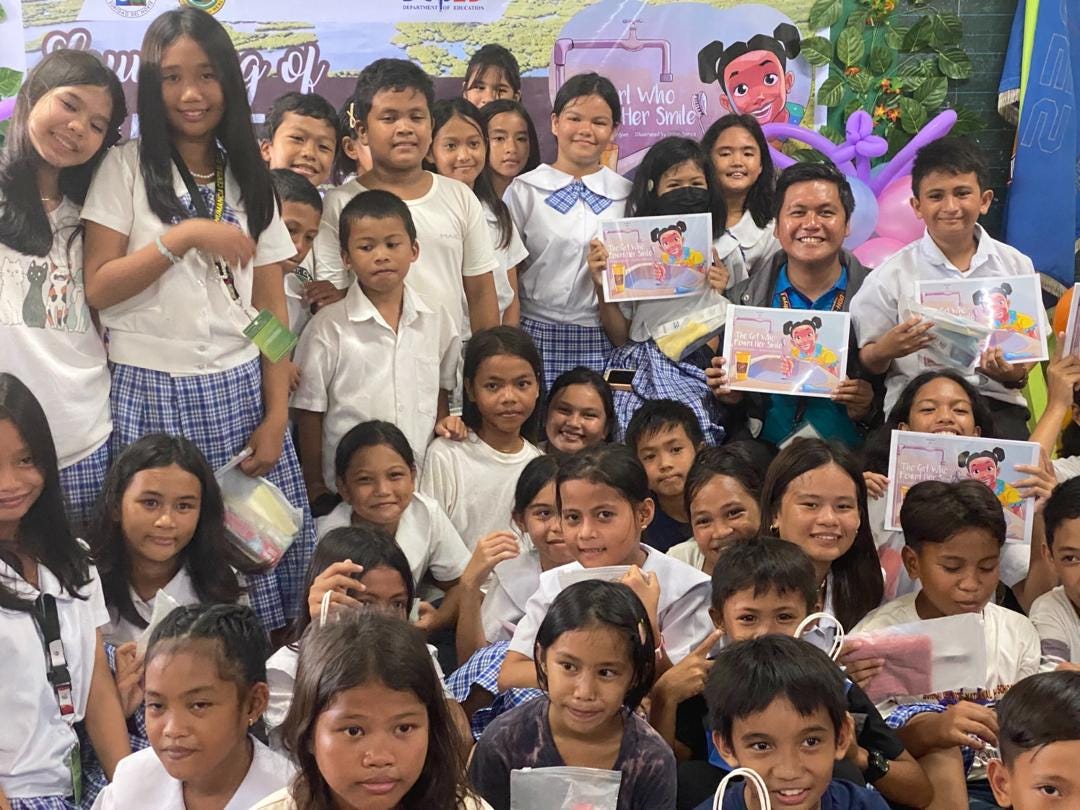
Building upon the success of ‘The Girl Who Found Her Smile’ book, Dental Care Foundation actively expanded its educational resources in 2021. They produced a tooth-brushing song for children, titled ‘Anita Sings’ and adapted the storybook into an animated video which is currently on YouTube. These engaging, edutainment-focused tools further inspire children to adopt essential oral hygiene practices, including regular tooth brushing and nutritious eating habits.
These practices have been proven to have demonstrated significant advantages in preventing oral diseases such as dental caries and periodontal disease among children.
Even in edutainment, challenges abound
Misinformation and myths around oral health in rural communities also make it hard to get consent from the parents when the foundation wants to carry out free oral check-up for children along with distribution of The Girl Who Found Her Smile and oral kits in underserved communities.
“Some parents in these rural communities believe that dentists can take the spittle of their child during oral check-ups and use for diabolical purposes, and this stops them from releasing their kids for our free oral check-ups,” Dr Adeniyan told said.
To ensure transparency, the foundation encourages parents and teachers to be present during their free oral check-up events.
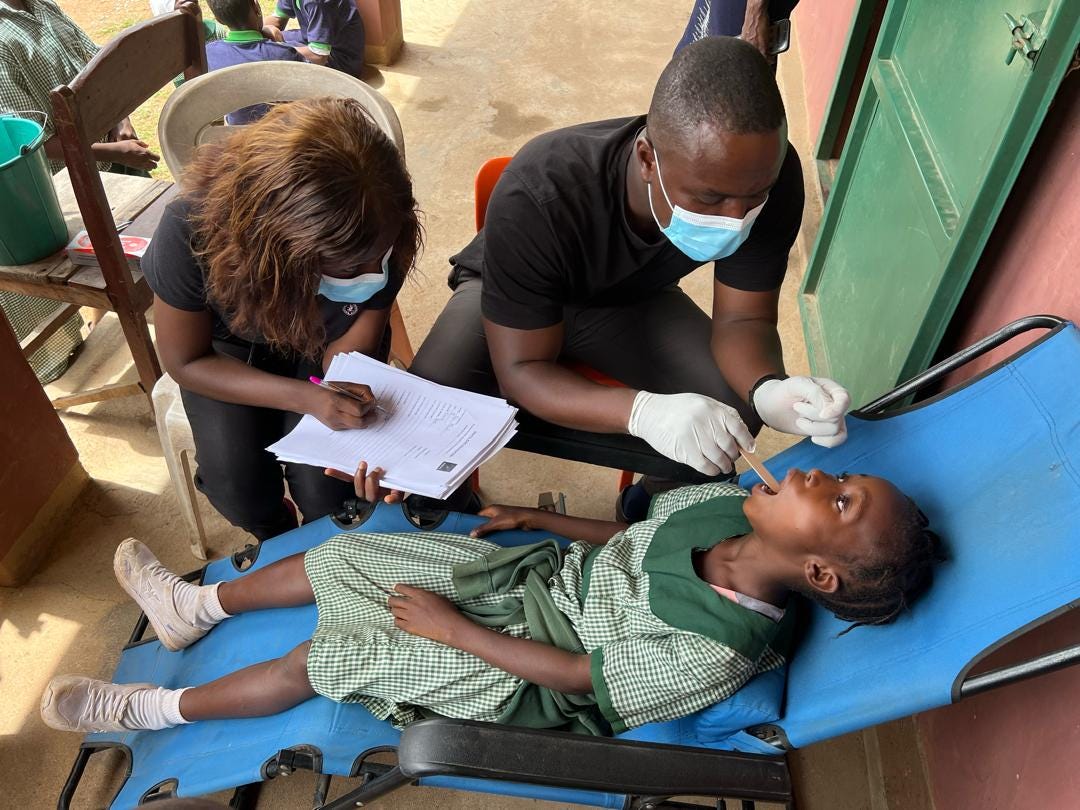
Adeniyan also noted that her organisation also faces pushbacks from some school heads who do not see the need oral health education, “they [school administrators] always tell us oral problems doesn’t kill. Other greedy school heads ask us to sell the books to the children instead of giving it out for free.”
Amidst Nigeria’s soaring inflation rate, the cost of publishing and distributing the book within the country and internationally has significantly increased. To address these challenges, the Dental Care Foundation has made the book available for sale on Amazon. This strategic move enables the foundation to channel the proceeds back into producing more free copies of the book, ensuring continued access for underserved children.
The Dental Health Foundation is actively establishing dental care clubs in schools where ‘The Girl Who Found Her Smile’ has been shared. In addition, the foundation is in the process of curating dental health stories written by children from underserved communities across Nigeria, with the goal of publishing these collected works by the end of 2024.


